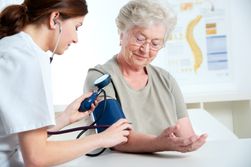4 Steps Doctors Take During Heart Disease Screenings

Health services like heart disease screenings benefit patients of all ages, especially if they have a family history of cardiac issues. With the help of screenings, patients can decrease the likelihood of developing cardiac conditions. The screenings are also partially covered by Medicare Part B once every five years, allowing you to mind your health without breaking your budget. Learning more about what to expect will keep your mind at ease for those new to the screening process.
What Tests Are Run During a Heart Disease Screening?
1. Size Analysis
A doctor calculates a patient's body mass index (BMI) by dividing their weight by their height. Doctors use the measurements to determine if an individual is at a healthy size and composition. Those with a BMI of 25.0 and over are considered overweight, while a BMI of 30.0 and above is deemed obese. Patients at these higher levels are at an elevated risk for congestive heart failure, atrial fibrillation, heart disease, and related conditions.
2. Blood Testing
 Those with high blood pressure (140/90 mm Hg and above) are more likely to sustain heart disease or a stroke. If the pressure is too high, doctors can decrease it by suggesting lifestyle changes and prescription medication.
Those with high blood pressure (140/90 mm Hg and above) are more likely to sustain heart disease or a stroke. If the pressure is too high, doctors can decrease it by suggesting lifestyle changes and prescription medication.
Health service providers also run a blood glucose test if patients have a cardiovascular risk factor and are currently overweight. If not maintained, high glucose readings can lead to diabetes, which can cause heart disease. Glucose levels that are higher than 130 mg/dl before a meal or higher than 180 mg/dl two hours after beginning the meal would be considered excessive.
Doctors will also use a blood sample to measure cholesterol, which is a waxy build-up in the blood that develops from an individual's diet. If the total cholesterol is 240 mg/dl or higher, doctors will prescribe medication and lifestyle changes.
3. Lifestyle Evaluation
Poor sleep habits, a lack of exercise, smoking, and consistently consuming fatty, sugary, and salty foods elevate blood pressure, glucose, and cholesterol levels. If these habits aren't broken, the risk of heart disease increases. But, by making changes and taking advantage of available cardiac health services, the levels and risks will diminish.
4. Family History
In some cases, people lead active and healthy lifestyles but still have an elevated risk for cardiac conditions. During the screening, doctors ask about your family's medical history. If several people in your immediate family have heart disease, then you have an increased chance of developing it too. The more information the doctor has, the more likely their solutions will keep you healthy.
Heart disease screenings allow doctors to help maintain or increase the cardiovascular well-being of their patients. For non-emergency roundtrip rides, reach out to Agape Transportation. They offer timely and safe transport for those in need of health services. Agape also accepts Medicare and Medicaid to benefit as many individuals in the Bronx, NY, and the rest of the five boroughs as possible. For more information on services, visit their website. They're available 24/7 at (718) 585-2222.
About the Business
Have a question? Ask the experts!
Send your question

